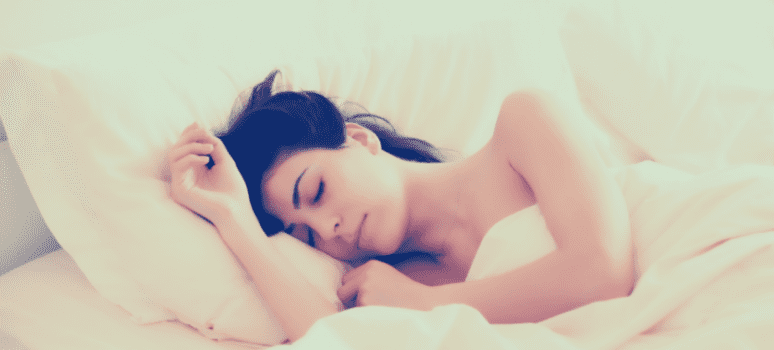
Experts recommend sleeping seven hours a day in adulthood and compensating for sleep deficits by napping.
Knowing through an analysis if our biological age coincides with our physical age, warns us of health imbalances, which can be modified with biological medicine treatments.
Difficulty getting to sleep, waking up frequently during the night or waking up before the alarm clock goes off and not falling asleep again are, according to the Spanish Sleep Society, sleep disorders that should be considered health problems. Around 15% of the general population, mainly women, suffer from one or more of these symptoms during their lifetime.
Poor sleep leads to long-term premature skin ageing
Due to lack of sleep our body produces less melatonin.. A hormone, with antioxidant functions in the brain and the skin, which regulates the sleep cycle and allows cells damaged during the day, due to pollution or ionising radiation, to repair themselves.. This deficit begins to worsen after the age of 35, when the number of children under the age of 18 begins to decrease. melatonin production and thus decrease skin protection.
As we spend more and more sleepless nights, the body produces more cortisol, the stress hormone, which causes a decrease in the production of natural collagen. This reduction causes the skin's elasticity to worsen and rehydration to suffer, favouring the appearance of wrinkles. In some cases, this situation means that the individual's chronological age does not correspond to their biological age.
Knowing our biological age
Finding out whether our internal biology (that of our cells) matches our physical years is possible. measuring telomere length. These are the ends of the DNA strands that shorten with cell division. The faster they shorten, the faster we age.
Although genetics plays a role in this gap, 75% of the causes are due, among other factors, to stress or lack of sleep. At Biosalud Day Hospital we have a Telomere Analysis consisting of a blood test which, by means of certain parameters, determines the length of telomeres and provides information on the biological age and degree of biological deterioration of the organism. With the result of this analysis, we will be able to personalise a treatment and thus slow down telomere shortening.
Biosalud Day Hospital programmes to improve sleep quality
Biosalud Day Hospital improves the functioning of the body by combining its high-tech treatments with specific diets for each patient. To this end, maintains an adequate level of amino acids and minerals that promote the release of serotonin. In fact, it is in the small intestine that up to 90% of this hormone associated with sleep control is produced.
Our Medical Wellness Programme aims to reduce stress in order to be able to fall asleep more effectively. We propose two programmes: Executive for people who lead a very demanding lifestyle and who want to Anti-Stress which reduces mental fatigue.
Breathing disorders during sleep, the most common being sleep apnoea.The breathing interruptions during sleep. These interruptions have negative consequences on our physical and mental state. Although there are several types, most apnoeas are usually caused by a deformity in the maxillofacial area that can be treated. with a surgical intervention.
Injections of growth factors as an anti-ageing treatment prevent cellular oxidation. At Bisoalud Day Hospital we have a great deal of experience in the application of this regenerative medicine technique that can be complemented with wrinkle fillers, radiofrequency or diathermy.
Finallywe cannot forget a healthy habit such as napping to help us compensate for sleep deficits. The Nobel Prize in Medicine, Michael W. Young, argues that the siesta originated in Africa millions of years ago and is still part of human biology today.. This sleep pattern should complement the seven hours an adult should sleep during the night for the health of our body and skin to be as healthy as possible.

